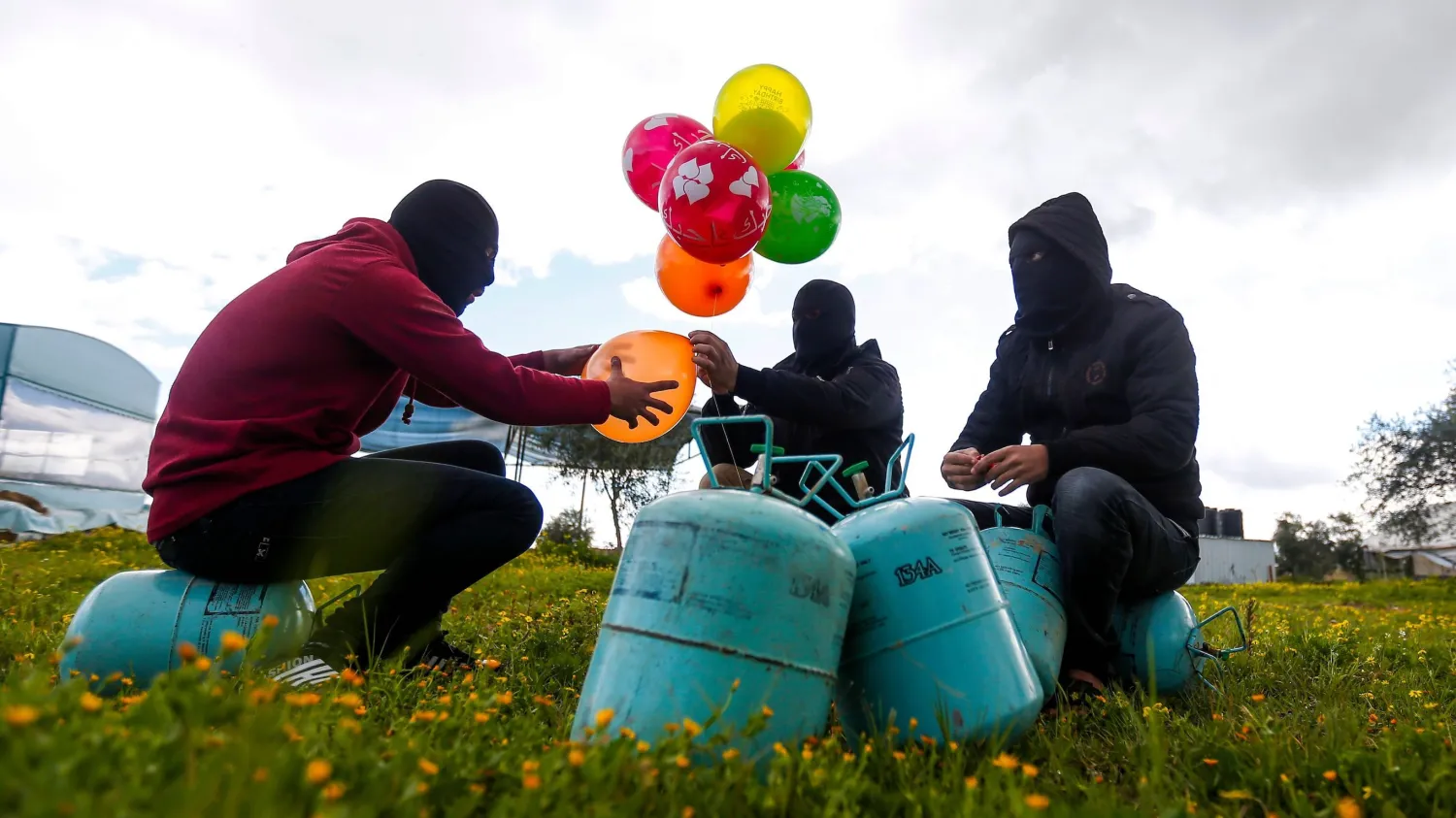The Qassam Brigades, the armed wing of Hamas movement, launched a number of test missiles from the Gaza Strip towards the sea coast controlled by Israel, in a new challenge to Tel Aviv which has been monitoring a deliberate escalation in the enclave.
The test missile launch coincided with an intense Israeli reconnaissance aircraft over the Gaza Strip.
The missiles were launched as incendiary balloons continued to be sent from the Strip in a “message” to Israel that the groups in Gaza will not “remain silent” in the face of an Israeli blockade and “aggression.”
The Interior Ministry in Gaza referred to the rockets as “an act of resistance.”
Israeli aircraft bombed a number of Hamas posts in northern Gaza, in response to the launching of incendiary balloons from the Strip to areas in the enclave. The factions also fired at an Israeli force near the wall with the Gaza Strip.
Last year, Israel reached an agreement with Hamas and Islamic Jihad under the support of Egypt, stipulating that Israel would reduce its blockade of Gaza by allowing extended trade between Gaza and Israel, expanding the fishing zone in Gaza, and accelerating the construction of the gas pipeline.
The agreement also aims to help the chronic energy shortage in the Strip, allow the import of prohibited items, and permit workers to leave Gaza. In exchange, weekly protests at the border will be stopped and rockets will not be launched into Israel.
In response, Israeli Alternate Prime Minister and Defense Minister Benny Gantz said Israel had no interest in an escalation in Gaza.
Speaking at a hearing before the Knesset’s Foreign Affairs and Defense Committee on the security situation, Gantz stressed that the main concern is to bring back Israeli citizens and bodies of dead soldiers held by Hamas since 2014.
The Defense Minister discussed with the Israeli chief of staff, Aviv Kochavi, the situation in the Gaza Strip. Israeli media said Gantz and Kochavi believe that the misunderstanding between Egypt, Hamas, and Islamic Jihad led to escalation.
Tel Aviv sent a message to Hamas about the "disturbing chain of events," warning that if the organization didn’t stop launching explosive balloons, Israel would escalate its responses.
Israel has not taken any measures affecting the movement of commercial crossings or fishing areas, despite reports about the closure of Palestinian crossing for transport of goods.
Palestinian sources said that Israel closed and then reopened Kerem Shalom crossing, however, Israeli media said that the crossing continued to operate, and reports about shutting it down were untrue.









